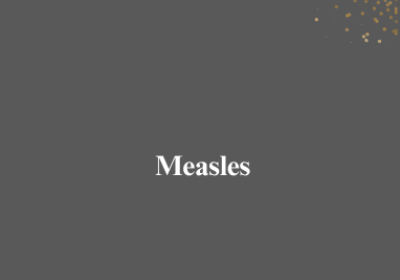
Understanding HPV Screening
Understanding HPV Screening: Key Facts and FAQs
- By --
- Thursday, 17 Aug, 2023
Understanding HPV Screening: Key Facts and FAQs
HPV (Human Papillomavirus) is a common virus that can affect both men and women. It's known to be the most common sexually transmitted infection (STI) globally. While many HPV infections go away on their own without causing any health problems, some strains can lead to serious health issues, including cervical cancer. This makes regular HPV screening an essential part of preventive healthcare for both males and females.
Are at-home HPV tests accurate?
With advancements in technology, at-home HPV tests have become more accessible. These tests allow individuals to collect their samples at home and send them to a lab for analysis. While at-home tests can provide convenience, accuracy is a crucial factor. The accuracy of at-home HPV tests can vary based on the brand and the sample collection process. Tests like the Jos Trust HPV and Superdrug HPV tests offer a convenient option, but it's important to ensure they are validated by healthcare professionals.
.jpg)
HPV Tests and Pap Tests: How Are They Different?
HPV tests and Pap tests, also known as Pap smears, serve different purposes but are often performed together. A Pap test involves collecting cells from the cervix to identify any abnormal changes that could indicate cervical cancer. On the other hand, an HPV test checks for the presence of the virus itself. While a Pap test can help detect cellular abnormalities, an HPV test can identify the virus even before cellular changes occur. When used in combination, these tests provide a comprehensive approach to early detection and prevention.
How Can I Protect Myself from Getting HPV?
Preventing HPV is crucial for reducing the risk of associated health issues. Practicing safe sex, using condoms, and limiting sexual partners can lower the risk of exposure. Additionally, getting vaccinated against HPV is a proactive measure. The cervical cancer vaccine is available for females and provides protection against the most common HPV strains that lead to cervical cancer. Early vaccination is recommended, usually before becoming sexually active.
Is There a Vaccine for HPV?
Yes, there is a vaccine available to protect against several strains of HPV. The vaccine is primarily targeted at preventing cervical cancer and other related diseases. The vaccine is usually administered to young individuals before they become sexually active, but it can also benefit older individuals who haven't been exposed to the virus. The vaccine is safe and effective, offering long-term protection against HPV-related health issues.
The Role of HPV Screening in Preventing Cervical Cancer
Cervical cancer is often associated with high-risk HPV infections. Regular screening for HPV and cervical cancer is crucial for early detection and timely intervention. Tests like the LabCorp HPV test and Roche Cobas HPV test can identify high-risk strains of the virus, allowing healthcare providers to monitor and manage the situation effectively. If an individual tests positive for high-risk HPV strains, further diagnostic procedures and treatment options can be explored.
Empowering Women with HPV Self-Testing
Cervical cancer genetic testing and HPV screening for females have evolved to include self-sampling options. This empowers women to take charge of their health by collecting their samples in the comfort of their homes. Tests like the Aptima HPV test offer accurate results from self-collected samples. This approach is especially beneficial for individuals who may feel uncomfortable with traditional testing methods.
Conclusion
In the journey to prevent cervical cancer and other HPV-related health issues, regular screening plays a pivotal role. Advances in medical technology have made testing more accessible and convenient, allowing individuals to take control of their health. Whether through traditional Pap tests, HPV tests, or self-sampling options, the key is to stay informed and proactive. Remember, prevention is always better than cure. To learn more about HPV screening, you can refer to trusted sources like the Deccan Herald's article on HPV screening [1].
[1]: [The HPV screening - Deccan Herald](https://www.deccanherald.com/-
-health/healthcare/the-hpv-screening-2-2646562)
By staying informed, getting vaccinated, and staying up-to-date with recommended screenings, you can take significant steps towards maintaining your well-being and preventing HPV-related health issues.





